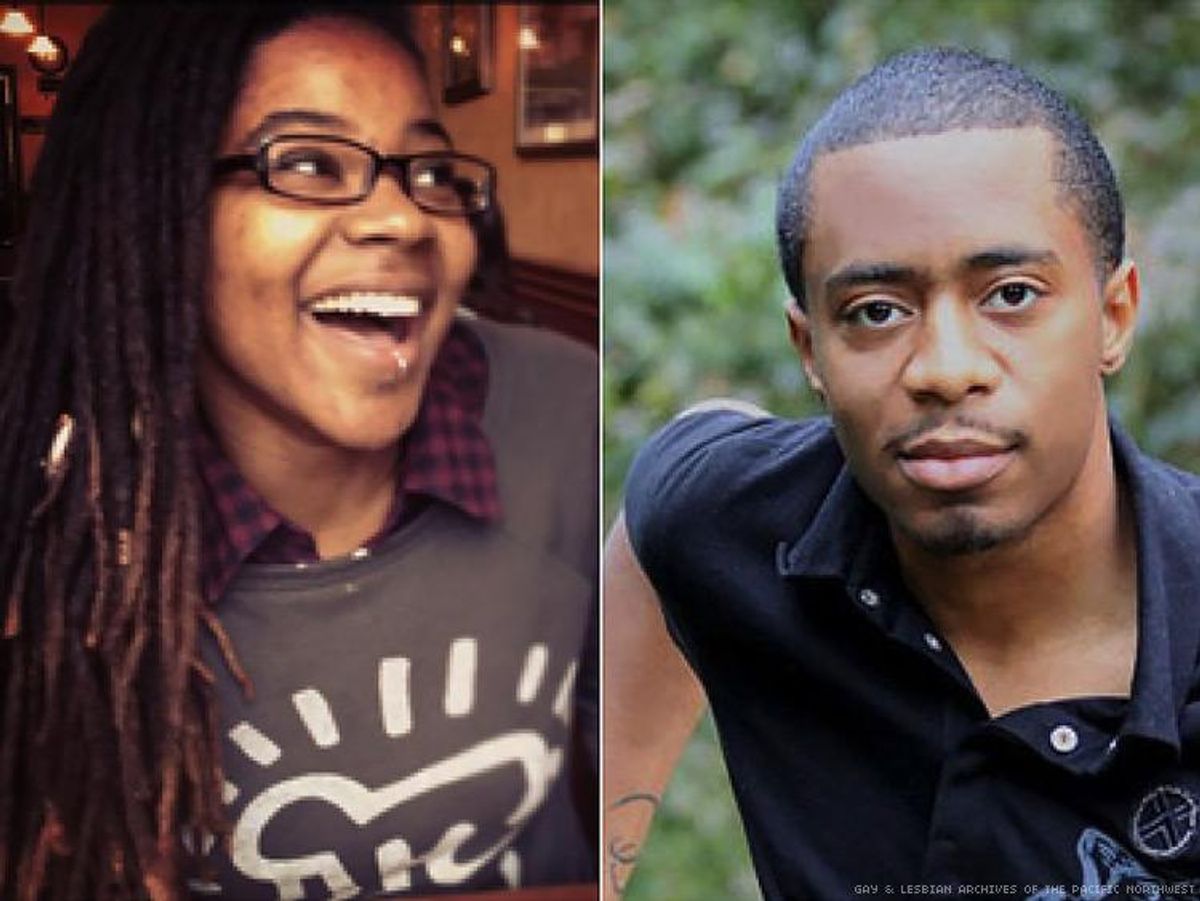Seven years ago, racial justice activists in Portland, Ore., worked with the local chapter of Parents, Families, and Friends of Lesbians and Gays to create an outreach group to meet the unique needs of black LGBT people and allies in the region. From there, the first and only black chapter of PFLAG formed in one of the whitest states in the country.
"It was about having a cultural response and work that was really unique and specific to black families," Khalil Edwards tells The Advocate. Edwards's mother, Antoinette, was one of the founders, and he joined the organization as a volunteer. Now he's the codirector.
The black chapter formed as a response to a lack of resources in the area. After some research, members realized that black families in the region had much different needs than white LGBT Portlanders. At the time, there was no black-focused LGBT group, according to Edwards, since the previous one closed in 2007.
"For it to be successful in our community and to meet the goal for engaging black folks, there needed to be something very different that spoke to our community and spoke to who we are and the ways that we build community and connect in community," says Edwards, who also works with Basic Rights Oregon as the racial justice and alliance-building manager.
Because of this approach, Edwards and others revitalized Portland Black Pride in 2011, expanded youth programming, and began vital faith outreach programs to reconnect with black LGBT people. But as the climate changed across the country and more groups made racial justice a centerpiece of their work, the priorities became more urgent for the group. This week board members voted to officially separate from PFLAG Portland and to establish the group as an independent not-for-profit black LGBT organization, Sankofa Collective.
"It's important for black-led groups to have autonomy," codirector Leila Haile says. "Doing work like youth advocacy, prison abolition, economic justice, and housing rights veered a little bit from your traditional PFLAG model."
The codirectors say their goals won't change, and the programs they've created will only grow. But it was important that the organization have the power to make its own structural decisions and set its own agenda
"We believe in a leaderful movement," says Haile, who joined the organization in 2013, working on youth outreach. "We take a lot of input directly from our community."
Sankofa Collective hopes to allow black LGBT youth to create their own safe space, and the codirectors say part of that is educating those around them about what a safe space is for black LGBT people as well as disrupting how the "not-for-profit industrial complex" works for their community.
"We look at the way that [partner organizations] aren't hiring a lot of queers or people of color, so that doesn't make a safe environment for our youth to walk into if they don't see themselves represented," Haile says.
According to U.S. Census data, Portland is about 6 percent black, and the codirectors say that small percentage contributes to the lack of visibility of intersectional issues important to African-Americans, especially LGBT African-Americans. The Atlanticrecently outlined how racist policies and mind-sets contributed to segregation in the city and limited economic and educational opportunities for blacks. It quoted, among other things, a report by Portland State University and Coalition of Communities of Color that found blacks in the region had lower incomes and levels of home ownership than whites. And a study released last year by the Urban League found that 21 percent of African-Americans in Portland are unemployed, compared to 8 percent of whites.
"No one believes that they're racist," says Haile, who feels the experience of talking about issues of race is like "being constantly gaslit. There's a small pocket of folks who realize that there is a racism problem in Portland, but most folks are on this 'post-racial' trip, where they think that they can be ironically racist because racism is over."
The leaders of Sankofa Collective hope their new model will help continue the work they started under PFLAG, while staying true to the needs of their community and providing opportunities unavailable while they were under a parent organization. Haile cites the organizers' own experience and growth as an example, having turned their worked and lived experience into a new philanthropic organization.
"We want to make sure that we're reaching out to those who don't have a social justice background or don't have a degree or formal training but know that their life skills of being a queer black person surviving in this atmosphere are enough," Haile says.

















































































